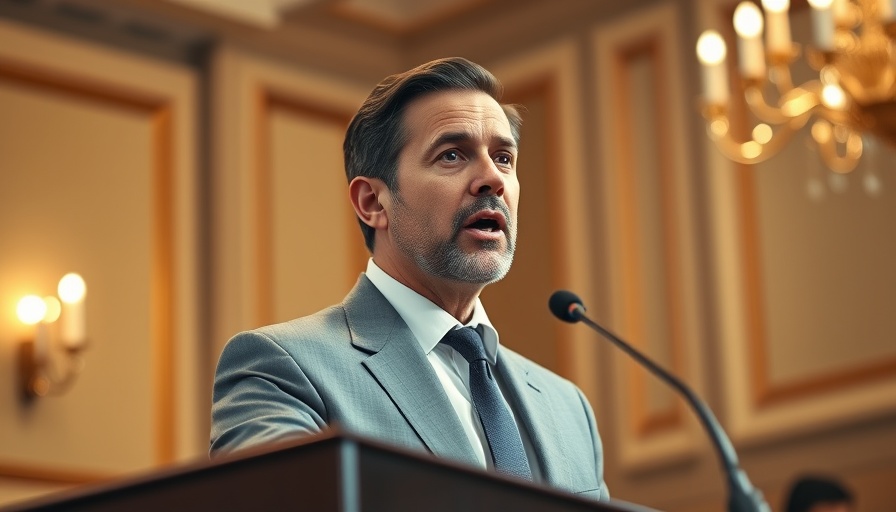
A New Direction: Ramaphosa's Bold Decision
In a move hailed as courageous by the African National Congress (ANC), President Cyril Ramaphosa has placed Police Minister Senzo Mchunu on special leave. This decision follows serious allegations from KwaZulu-Natal Police Commissioner Nhlanhla Mkhwanazi, suggesting that Mchunu and other senior police officials may have connections to criminal syndicates and were interfering with police operations. ANC spokesperson Mahlengi Bhengu-Motsiri expressed confidence that this action is the first step towards uncovering the truth, asserting that the integrity of South African policing must be upheld.
The Controversy Unraveled: Allegations Against Mchunu
Mkhwanazi's allegations paint a troubling picture of law enforcement in South Africa. He asserts that the judiciary is implicated in the infiltration of police agencies by organized crime groups. The situation raises questions of accountability and effectiveness within the nation's crime-fighting bodies. As the ANC supports the investigation, it will be crucial to watch how these claims unfold and whether they will lead to substantive reforms or merely more political posturing.
Political Implications: What's at Stake for Ramaphosa?
The fallout from Mchunu's special leave comes amid heightened scrutiny of the ANC's governance, particularly on issues of crime and safety. With the looming 2024 general elections, the ruling party faces pressure to demonstrate its commitment to anti-corruption measures and public service reforms. Mchunu’s leave may either enhance the ANC's platform on integrity and justice or be viewed as a fleeting gesture if not followed by sustained action.
Opposition Response: Doubts and Criticism
The uMkhonto weSizwe Party quickly criticized Ramaphosa’s decision, alleging that it undermines the important work done by Mchunu’s disbanded Political Killings Task Team. Spokesperson Nhlamulo Ndhlela argues the team’s successes in addressing political killings highlight a need for consistent support rather than dismissal. Their views shed light on the delicate balance of power and accountability within South Africa's political landscape.
Looking Ahead: Future of Police Reform in South Africa
As Ramaphosa commissions an inquiry into the allegations against Mchunu, the nature of this investigation will be critical in determining the future of police reform in South Africa. Will this lead to meaningful change in the policing system, or will it result in another chapter of bureaucratic delays? Civil society engagement will be vital in holding those in power accountable as the nation awaits the inquiry's outcomes.
Understanding Crime Prevention: A Societal Framework
The need for crime prevention measures resonates deeply within South African society. With ongoing challenges such as youth unemployment and persistent income inequality, effective policing strategies must be intertwined with broader societal reforms. As the government works towards solutions, embedding integrity in law enforcement agencies will be paramount for building public trust.
Conclusion: The ANC’s Turning Point
President Cyril Ramaphosa’s decision to place Minister Mchunu on special leave is more than a mere administrative act; it reflects the ANC's commitment to addressing serious allegations and striving for reform. South Africa stands at a pivotal moment where the political landscape can shift considerably depending on how the ruling party navigates these allegations and the forthcoming inquiry.
As professionals, it’s our duty to demand transparency and hold public officials accountable. Engage with local discussions, share insights, and contribute to an informed electorate that can push for the reform necessary to address South Africa's pressing crime issues.
 Add Row
Add Row  Add
Add 




Write A Comment